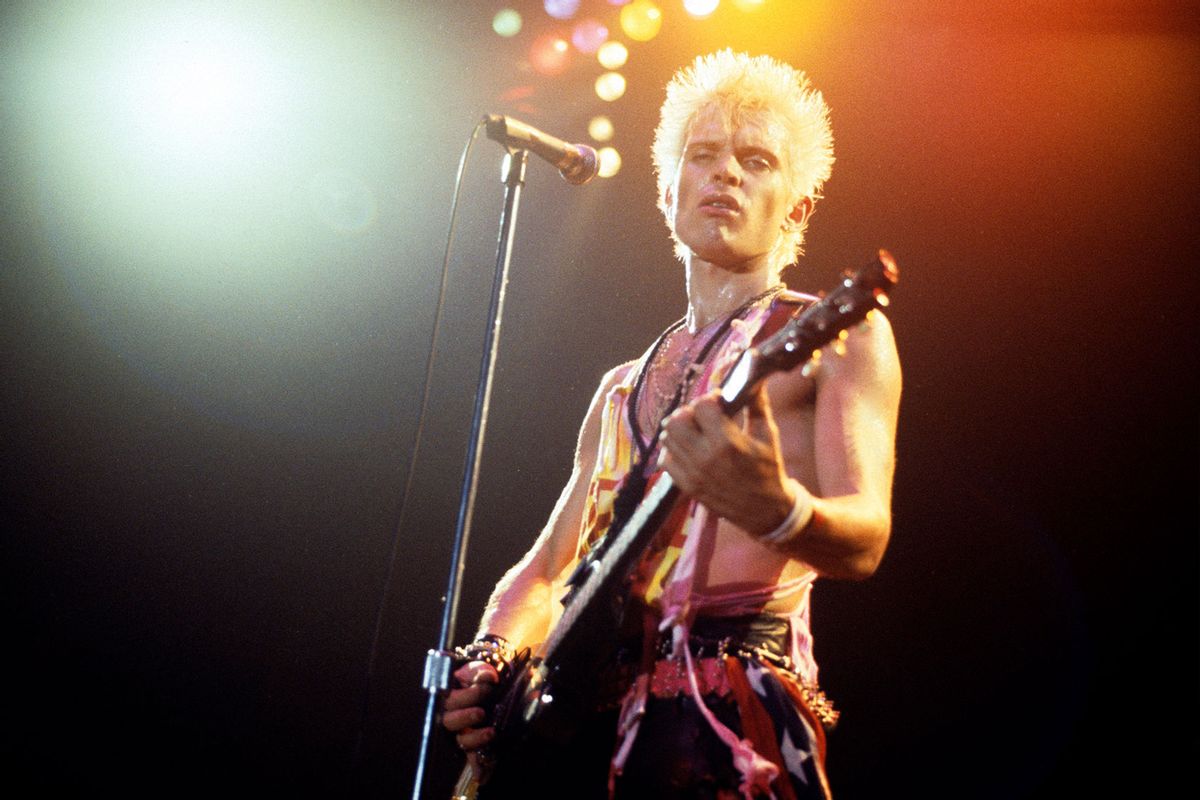In the early 1980s, Billy Idol exploded onto the American music scene with “Dancing with Myself,” the neo-punk anthem that he originally recorded with Generation X. He had recently left England for New York City, having heard the siren call of MTV. As he recently reflected on the "Everything Fab Four" podcast, the flamboyant Idol and upstart MTV were made for each other, which he proved in unforgettable style with the video hit “White Wedding” on his self-titled debut LP.
But Idol’s incredible coming-out party as a hitmaker was a mere prelude to 1983’s "Rebel Yell," an album that sounds as fresh and arresting as it did more than 40 years ago. In a newly remastered, deluxe edition, "Rebel Yell" underscores Idol’s vaunted place as one of his era’s most dazzling performers, as well as the searing, hard-rocking voice at the center of an increasingly plasticene, synth-driven musical epoch. In short, Idol was the rock ‘n’ roller at the center of the maelstrom.
With Steve Stevens turning in one raucous guitar lick after another, "Rebel Yell" is a veritable feast for the ears. When he originally assembled his backing band at Electric Lady Studios in New York City, Idol knew that something special was in the offing. Enjoying heavy rotation on MTV on the wings of “Dancing with Myself” and “White Wedding,” his audience hungered for more. With the hard-rocking “Rebel Yell” leading the way, the album delivered one hit song after another, including several of Idol’s signature compositions.
In addition to the title number, the album sizzles with hit songs like “Eyes without a Face” and “Flesh for Fantasy.” In the former composition, Idol turns in an early rap performance, while “Flesh for Fantasy” offers one of his most sensual musical turns. Both songs were ably supported by music videos, which cemented Idol’s place at the heart of the music-video zeitgeist.
The deluxe edition of "Rebel Yell" features a host of bonus tracks, including “Best Way Out of Here” and “Love Don’t Live Here Anymore.” But the real gems are the demo and early session take for “Flesh for Fantasy,” which began as a searing, up-tempo number only to settle into the slower, more pronounced version that later took the music world by storm. Audiophiles will revel in the array of supplementary materials provided by this lavish collection, while new fans will delight in the high-octane sound of Idol at the top of his game.
Read more
from Kenneth Womack



Shares